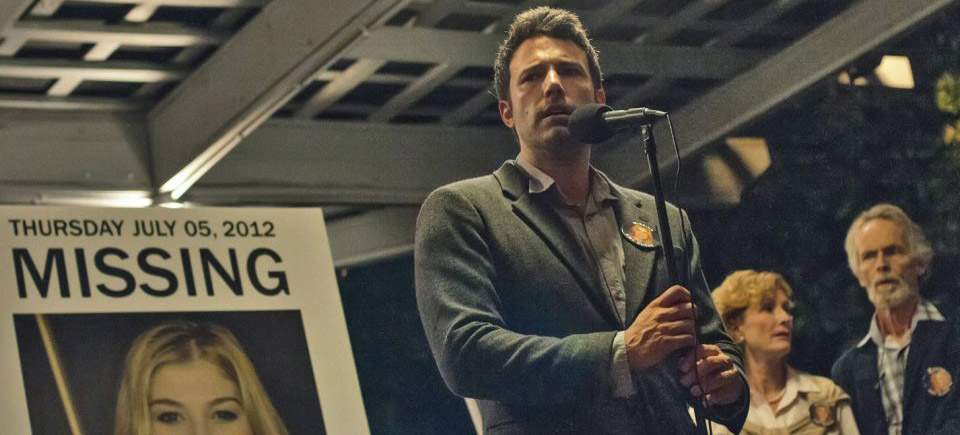Gone Girl
A dark and twisting tale that's also a biting commentary on relationships and media frenzy.
Overview
The director of Seven, Fight Club and The Girl with the Dragon Tattoo, David Fincher has made a career out of stylish, devilishly entertaining pulp. His latest film, Gone Girl, is absolutely no exception. Adapted from Gillian Flynn's bestselling novel of the same name, it's a dark and twisting tale that presents itself as both a biting commentary on relationships and media frenzy, and a subversion of procedural film conventions. And at the same time, it fully embraces the sleaze and exploitation of that which it critiques.
Despite his superhero physique, Ben Affleck looks decidedly schlubby as Nick Dunne, an out-of-work writer from a small town in Missouri whose wife, Amy (Rosamund Pike), goes missing on their five-year anniversary. Signs of a struggle indicate she might have been abducted, and before long the entire country is following the case. But as more and more evidence comes to light, including a six-figure life insurance policy and a string of expensive credit card purchases, suspicion is soon cast upon her husband. And as a series of flashbacks told from Amy's perspective expose a marriage that had begun to turn sour, we're forced to confront to possibility that Nick may be a killer.
Of course, it's nowhere near as simple as all of that. Gone Girl is the sort of movie that is very difficult to review, because so much of what makes it interesting lies in its second and third act revelations — each more deliciously silly than the last. Viewers unwilling to suspend their disbelief may struggle with the film, which really pushes the boundaries of plausibility. Then again, lurid, outlandish plot twists go part in parcel with the genre, as Fincher fans would well know. Although the movie plays fairly straight, there is definitely an element of subversion here, along with a jet-black sense of humour that manifests itself in unexpected ways.
For example, it's hard not to snort when Nick complains, with a completely straight-face, that he's tired of "being picked on by women." The film's representation of gender and marriage could be the subject of an essay in and of itself. Suffice it to say, any movie that can be read as both a bloody tale of female empowerment and a twisted fantasy that implicitly exonerates domestic abusers is worthy of critical attention.
Affleck, to his credit, gives what is probably the best performance of his career. One suspects that the casting choice was a self-aware one, given how much of the actor's life has been scrutinised in the tabloids. In a film full of unlikeable characters, the most repugnant are the likes of talk-show host Ellen Abbott (Missi Pyle), quick to condemn Nick's awkward, emotionless television appearances as evidence of his guilt.
The film is very much a double-edged sword though. It condemns us for our obsession with violence while funnelling it down our throats. Once again, Fincher is dressing up trash as serious art, wanting to have his cake and eat it too. And frankly, we wouldn't take it any other way.





